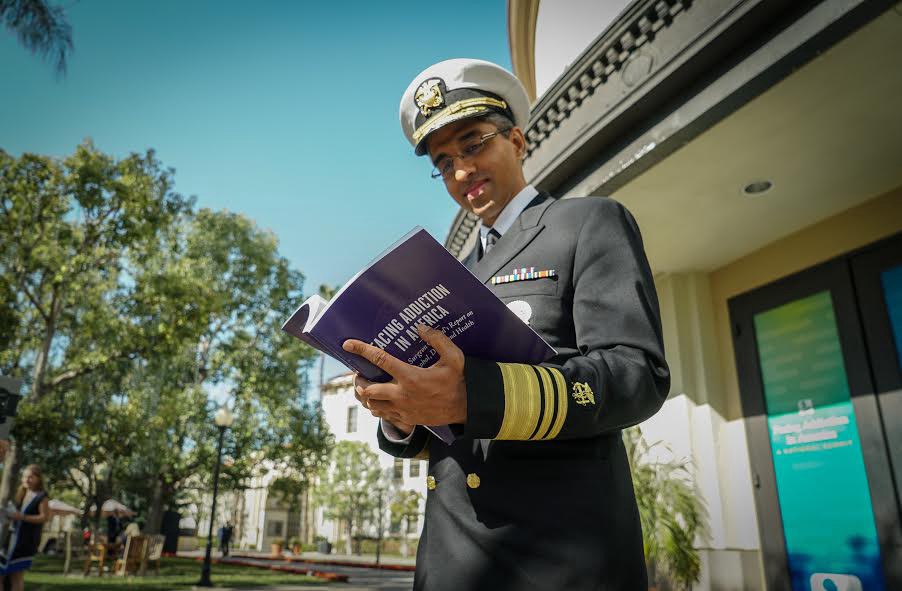When I became a doctor, I expected that most of my time would be spent seeing patients with chronic conditions like heart disease, diabetes, and cancer. When I became Surgeon General, I was eager to engage our nation in discussions about how to prevent those diseases and how to make sure everyone has a fair shot at living a healthy and productive life.
But in both jobs, I found it impossible to treat the chronic diseases in front of me without first confronting the all-too-common reality of drug and alcohol addiction. Nearly 21 million Americans suffer from a substance use disorder. That’s comparable to the number of people in our country with diabetes. It is one and a half times the number of Americans with all cancers combined. And yet, in spite of the massive scope of this problem, 90% of these individuals do not get treatment.
Imagine if 90% of people with cancer or diabetes could not get treatment for their illnesses. We would never accept that. So why do we allow it for people with drug and alcohol addiction?
For more than five decades, my predecessors have raised the alarm about public health threats from tobacco and AIDS to mental illness and violence. But there has never been a Surgeon General’s report on addiction until now.
On November 17, I published “Facing Addiction in America: The Surgeon General’s Report on Alcohol, Drugs, and Health” to call our nation to action to address the crisis of addition. In the report, I explain the scope of this epidemic, share the best available science on substance use disorders, and make it clear that prevention works, effective treatments are available, and recovery is possible for everyone. Addiction is a public health challenge that requires a public health solution. We cannot incarcerate our way out of it.
Above all, I published this report because I believe we need a cultural shift in how we think about addiction. For far too long, negative attitudes toward substance use disorders have made people feel scared and ashamed to come forward and ask for help. It is long past time to start seeing addiction, not as a moral failing or a character flaw but as a chronic disease of the brain that we must treat with the same skill, urgency, and compassion as we treat heart disease, diabetes, and cancer.
Every part of our country has been touched by this epidemic in some way. I’ve seen the ravages of addiction from Knoxville to New York to Napaskiak. (The latter is a remote fishing village in Alaska with a population of less than 500; the local drug dispensary has been broken into multiple times by people seeking prescription painkillers.) Substance use disorders cost our nation $442 billion each year in health care costs, lost productivity, and criminal justice system expenses. What we cannot quantify is the human toll on individuals, families, and communities. That cost is far greater.
I believe we have the power to overcome our nation’s addiction crisis. I draw hope from the families I have met all across America who are turning their pain into a passion for helping others by supporting prevention and treatment programs in their communities. Above all, we must never forget that compassion is our most powerful tool in the campaign to end addiction. Compassion is what allows us to stop judging and start helping. It’s what allows us to put aside our biases and offer support. You don’t need a medical license to dispense compassion. It is humanity’s oldest medicine, one that we all have ability to give and receive.

Dr. Vivek H. Murthy is the 19th Surgeon General of the United States and Vice Admiral of the U.S. Public Health Service Commissioned Corps. For more, check out www.SurgeonGeneral.gov.
Originally published at medium.com


